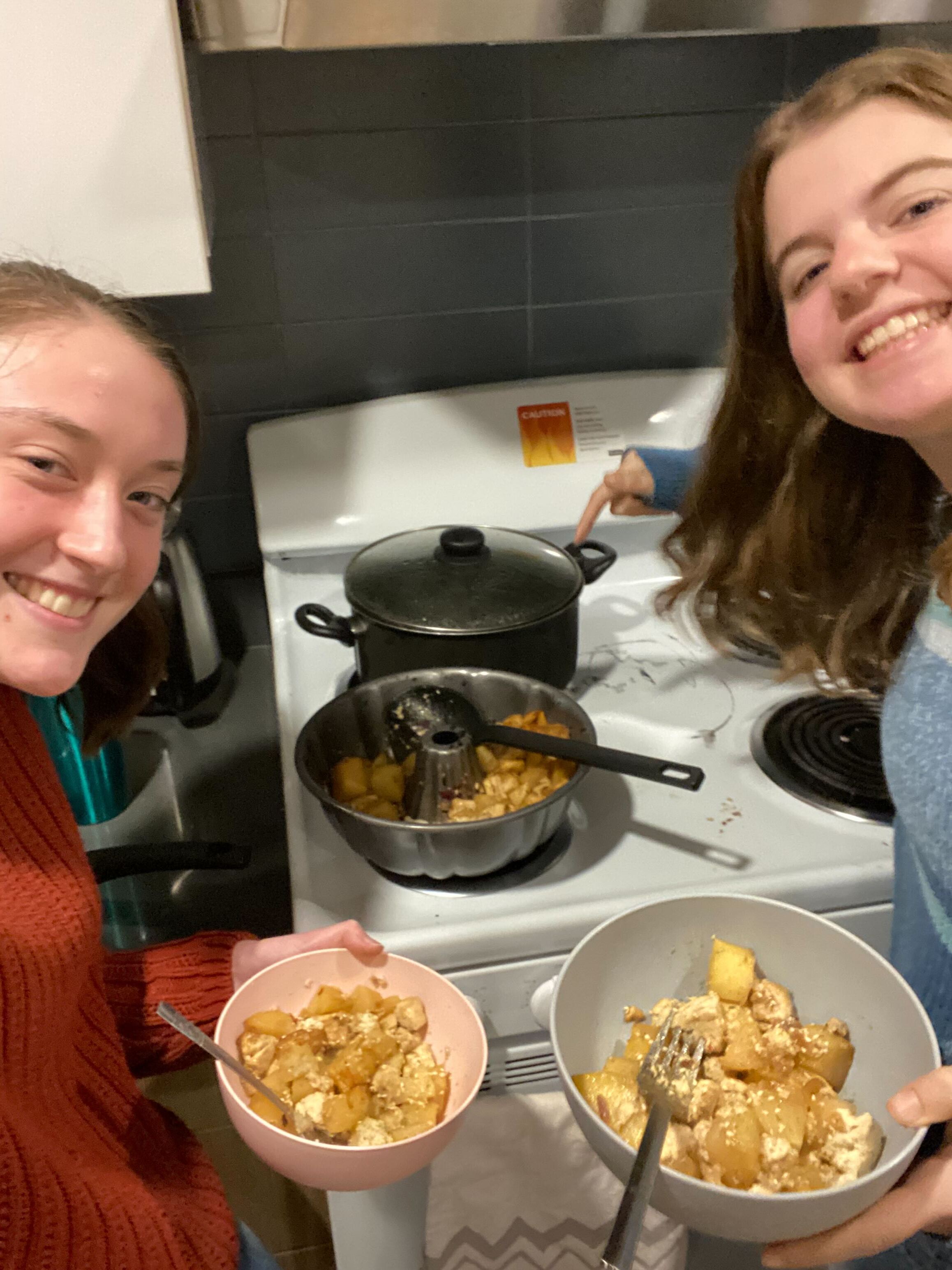
On Oct. 6, 2023, Danielle Garten ’24 and I didn’t expect to eat tofu-potato hash for dinner. I would imagine no one ever does. We had just arrived at Bowdoin for Fall Break to visit our respective high school friends, whose friendship we take credit for: Danielle and I met each other as first-years at Wesleyan, and upon making the connection, we implored them to hang out together.
At 6 p.m., our academically inclined friends were still at the library. We began preparing the tofu and potatoes only to discover that their apartment didn’t contain the most versatile cooking tool ever: a sheet pan. We made do with what we had, a pot and a frying pan, and decided to boil the potatoes and fry the tofu in oil.
We began by heating a pot of water. Soon, Danielle looked up from chopping ingredients and asked, “Is it supposed to be on fire?” I was about to cheerfully inform her that there was no need to light the electric stove, when I discovered that the burner was in fact on fire.
The building’s alarm immediately went off, and I could suddenly see little soot flakes drifting around like snow. Our friend’s patient roommate emerged from her room to turn on the exhaust fan, and we left with everyone else in the building. We were not students there, our hosts were nowhere in sight, and we had just caused an entire apartment complex to be evacuated. As six firefighters arrived in full gear to set up a fan in the hallway, we called our friends, profusely apologizing, and they showed up to give their names for the incident report, consoling us at this time of distress and embarrassment.
Playing right into the stereotype that college students cannot boil water, we reported that the water never made it past lightly steaming. We also theorized wildly to the campus safety coordinator about grease and debris under the heating element. He shrugged and told us not to use the burners until an electrician examined them.
Our very smart friends returned to the library (I can hardly imagine the state of their social lives without us), leaving Danielle and me with a lot of chopped-up, raw food, a moratorium on stovetop use, and no sheet pans. We had come too far to order takeout, so we ransacked the kitchen and finally found one oven-safe receptacle: a bundt pan. Into this, we dumped all of our food.
It took about three times as long as I thought for the potatoes to cook through, but the dish tasted about four times as good as I expected. I highly recommend this recipe for the next time you face a bunch of tofu, potatoes, and dysfunctional electric burners. It is also appropriate for another scenario, where your stovetop isn’t a fire hazard, but you are missing pots and frying pans.
Ingredients:
- 1 pound firm or extra firm tofu
- 4 russet or Yukon Gold potatoes
- 3 tablespoons olive oil
- 1/2 red onion
- 3 cloves garlic
- 3 tablespoons lemon juice
- 1/4 cup soy sauce
- Onion salt to taste
- 1 pinch red pepper flakes
Directions:
- Make sure the stovetop is unusable by setting the burners on fire.
- Heat oven to 350 degrees Fahrenheit.
- Chop tofu into one-inch pieces, peel potatoes if desired, and then chop the potatoes into ¾-inch pieces.
- Toss tofu and potatoes in a bundt pan with oil.
- Finely chop onion and garlic.
- Combine onion, garlic, and all remaining ingredients into a sauce in a small bowl.
- Pour sauce over tofu and potatoes. Stir, if you can, without making everything fall out of the pan.
- Bake until the potatoes are tender (probably about 90 minutes). Check the potatoes frequently after the first 45 minutes of baking.
Anne Kiely can be reached at afkiely@wesleyan.edu.


Leave a Reply